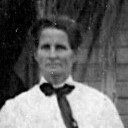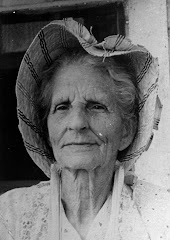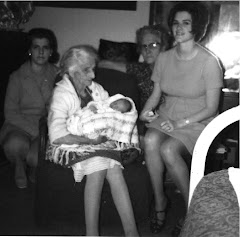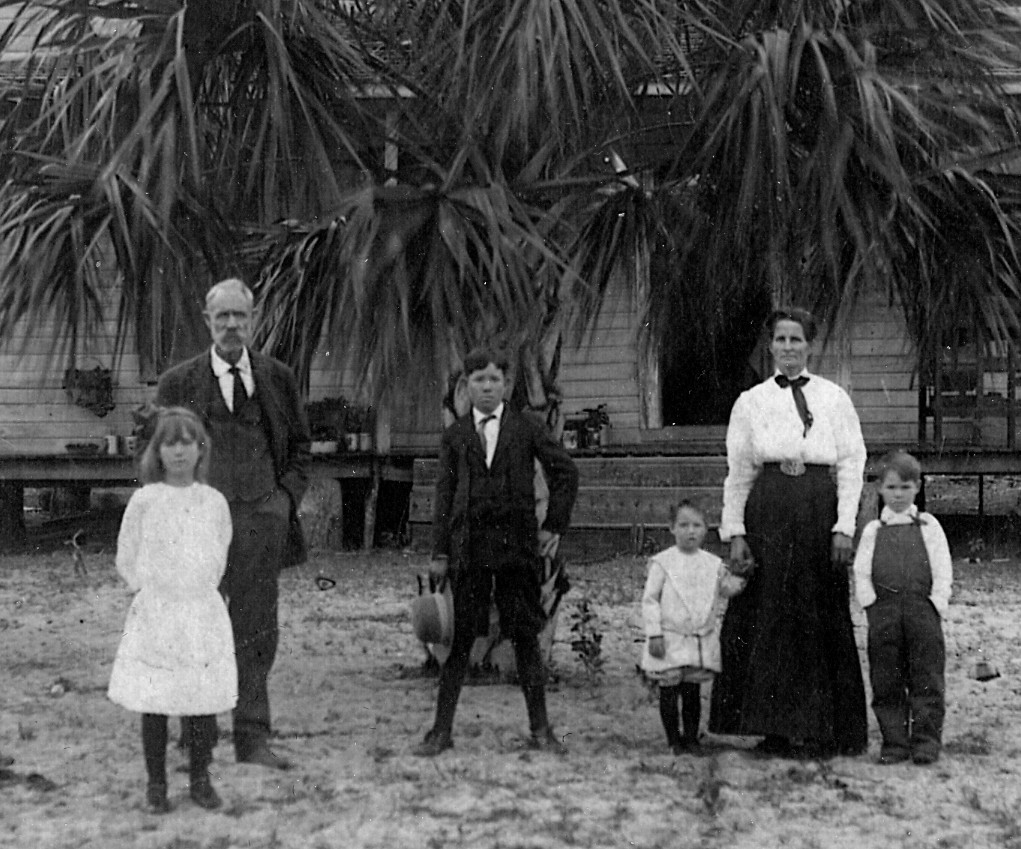
GRANDMA SARAH PEDRICK ASAY
Foreward: I have no talent, nor have I had experience in writing, but for years I have felt a strong desire to write of the important incidents in the worthy life of my grandmother, Sarah Pedrick Asay. It’s probable, too, that our children, and possibly others may, in years ahead, benefit from and be grateful for this writing. I am indebted to John C. Houston for assistance.
Elnora Asay Thompson.
Sarah Ann Pedrick Asay was born March 18, 1818, in Philadelphia, Pennsylvania. We know little of her parentage. I haven’t her parents’ names nor the names of the other children in the family. It is known, however, that her parents were wealthy and that she was so reared. In their home all work was done by servants. However, she was taught to cook and to do other skilled work. She told of an incident in her childhood – her father was going to take her for a ride in a “coach of six” attended by footmen, and as she came down the marble steps out of the home, the rattle of her silken skirts frightened the horses, and they ran away.
When she was twenty-two years old she married Joseph Asay and lived in Philadelphia until after her first child, William Pedrick, was born. They moved to Trenton, New Jersey, the home of Joseph’s parents, Isaac and Phoebe Asay.
Grandfather invested here in a manufacturing business and prospered for a time. They too lived in a fine home, rode in a “coach and six”, and were considered wealthy. Grandmother liked to cook and would go into her kitchen and, while planning meals with the cook, would put on an apron and peal potatoes or do other simple chores. On several occasions, grandfather, upon coming home bringing a friend to meet her, would have to go to the kitchen to find her, and being quite annoyed would tell her he did not want to find her in the kitchen again.
Ten children were born to them while they lived in Trenton, nine boys and a girl, making in all a family of eleven children.
It is not known just when the Mormon Elders first began calling on them, but one of the first to call was an Elder Marble. Grandfather’s entertaining the elders was very annoying to his parents and other relatives. When grandfather and grandmother and the children were converted and told their relatives that they were going to be baptized, his father told him he was through with him, and handing grandfather a dollar, he said “I am obliged to give you this, but you will never receive a penny of my estate”, and he never did. Grandfather was a mild-mannered, good natured man and loved his parents and kindred, and their bitter opposition was to him a terrible blow.
Deciding to move west, Grandfather sold everything and told Grandmother they were going to the Mississippi Valley. For some reason he never told her they were going to the Salt Lake Valley to join the Saints.
When they arrived at the Mormon Camp on the Mississippi River and saw Brigham Young’s trains of wagons and oxen and saw printed across the covers of those prairie schooners the words “Salt Lake City” grandmother was terribly upset. President Young picked her up in his arms and blessed her, telling her she would never regret going to Utah. When she was 73 years old she told a daughter-in-law of this incident and added, “though I left a beautiful home and had never sat on any but soft cushioned chairs and have since had to sit on nail kegs, goods boxes, etc., I have never regretted coming to Utah.”
It did require a lot of faith and courage to take a family of eleven children, the youngest a babe of two years, and cross the plains, not knowing what lay ahead. When they all got into the wagon and started the oxen, Grandmother was frightened and cried out, “Oh, no lines?”
One time they were without water and the thirsting baby cried until it could cry no longer. The men rode on ahead on horseback in search everywhere for a green cluster of growth, thinking possibly to find some moisture beneath its roots, but they were not so rewarded. Grandmother had them bring her a cactus. She split it open and held the cut side on the baby’s swollen tongue while enough moisture oozed out to keep it alive until water was found.
They arrived in the “Valley” in 1861 at the time the Saints were excited over the coming of Johnston’s Army. Because Grandmother naturally was able in caring for the sick, she was asked to work with Dr. Anderson, one of the best doctors in the city at that time. The Church was calling people to a mission of settling and building up the outlying areas. Five years after Grandfather entered the Valley, he too was called to go on to the Colorado River in northern Arizona.
Grandmother soon sensed the indispensable need in these outlying, far distant settlements of women trained in nursing and in obstretrics, and she returned to Salt Lake City and took a course in Midwifery, which afterward proved a blessing to the pioneer settlements where she lived.
Later the Asay family was called to the Muddy Mission in Nevada where the people lived in dugouts and underwent severe hardships. When they were released from this mission, they were allowed to settle where they pleased.
On their way to the “Muddy”, however, the family visited in the settlements around St. George, Harrisburg, Leeds and Silver Reef, where romance began for seven or eight of the grown boys. Upon their way back to these settlements the sons secured their wives and all followed their parents to Long Valley, settling at Mt. Carmel and Orderville. Some of the sons joined the United Order.
The Church was now establishing settlements in central and Southern Arizona, and the Asay families were called to move a few miles north onto the head waters of the Sevier River, where they could render assistance to the Saints going south into Arizona. The creek became known as Asay Creek, and their settlement as Asay’s Post Office. As in other settlements, grandfather kept a little store. The Asay families settled here in the seventies, and through the eighties and nineties they prospered, even after the terrible livestock loss shared by everyone during the awful hard winter of 1886-87.
Very often Grandfather would ask individuals home to eat with him, and Grandmother never knew who or how many she might have for dinner. One of her most embarassing moments came just that way; having been left again without stovewood, she decided she would have to do something to make Grandfather remember. She prepared her vegetables and put them on the cold stove, arranged the kindling in the grate, set the table with the dishes and food which needed no cooking, then placed the ax in the center of the table. Grandfather came in at noon with two strange men. He gave a quick embarassed look at the table and then said to the men, “Excuse me”, and returned soon with firewood. Grandma said years later, “That was the quickest meal I ever prepared.” Grandfather never did say anything to her about the incident and never again forgot to leave wood.
Grandfather Joseph Asay died October 3, 1879, and for a decade thereafter Grandmother kept the sons clustered in the settlement on Asay creek. It was especially during this period that Grandma Asay was the ministering angel to the settlements, and in particular at the births in the homes of her own children. Many people testified of the healing touch of her kind hands, and those same hands had so many kinds of hard work to do in the daily routine of pioneer life, but she never tired of doing or giving, and hundreds of babies came safely into the world through her tireless efforts. It meant loss of sleep, going in all kinds of old-time vehicles, and in all kinds of weather; sometimes away from her family for days, and all for a sum so pitifully small it is not worth remembering, and many, many times she received nothing.
Grandmother always remained slender, tall, and erect, and had a soft, pleasing voice and disliked loud laughter. She was modest and chaste in her thought and speech, and the principles of honesty and virtue were planted deep in her heart. The dearest impression she left me was how hard she tried to teach her grandchildren the necessity of living a clean, virtuous life. As I remember her, she was a woman of few words, spoke straight to the point, and told the truth whether one liked it or not, yet she was loved by all who knew her. I remember well as a child (and she was past seventy) how I loved to visit her and was thrilled when she asked me to comb her hair and pull out the few gray hairs.
Toward the close of the century her sons grew restless and one by one moved away again, a few years later, come together in the pioneering of the Big Horn Basin in Wyoming. Grandmother, now in her eighties, went with a son and family into eastern Utah where, on April 11, 1900, at the age of 83, she died at Ferron, Emery County. And thus the curtain dropped on the life of a worthy Christian woman, who was born and reared in a mansion which she sacrificed for a life of hardship and service. We very fittingly close with this tribute paid her by all her daughters-in-law. “She was a grand old lady and the best cook we ever knew.”
Transcribed to computer by Jeremiah Stoddard <jeremiah@jeremiahstoddard.com> 13 June 2006.





3 comments:
This is so cool!! Thanks Mom!
It is good to know your ancestors. I'm glad I could introduce you.
Just found this, thanks so much. Sarah Ann Asay is my ancestor too. John C. Houston is my great grandfather.
Post a Comment